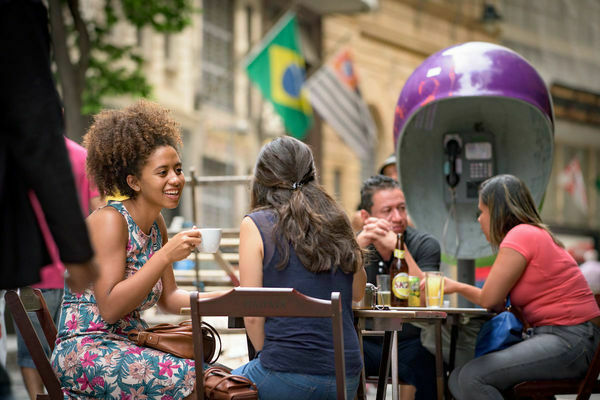
There are many ways to globalize your education through programs at Notre Dame. Choosing a major within the Department of Romance Languages and Literatures is one of them.
Through this department, you can major in French, Italian, Portuguese, Spanish, International Economics, and, for the student who wants to major in two programs, there is the major in romance languages and literature. Check out all the romance languages and literatures majors here.
The four students below chose majors in this department and have benefited in a variety of ways from their language study. From study abroad to research to language clubs, learn how their majors and other resources at Notre Dame have helped them to gain a global perspective.
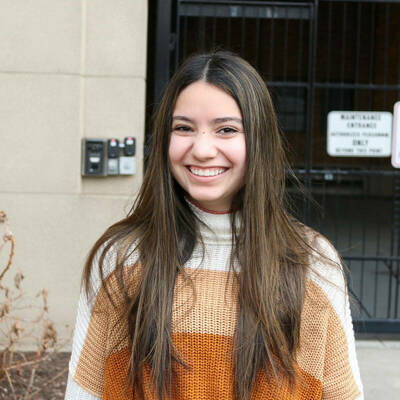
Irma Ibarra '22
Majors: Accountancy and Italian
Why did you choose to major in a Romance language/literature?
I didn’t come into college intending to major in Italian; it just sort of happened. I wanted to learn Italian and French and I told my academic advisor this on the course selection form that we had to fill out prior to first semester freshman year.
I grew up speaking Spanish at home, so I also told him this and asked that he put me in whatever language he thought would be easier to start with. He put me in the Intensive Beginning Italian class with Professoressa Serafini and I loved that class so much, I decided to keep taking Italian classes. I liked the pace of the intensive class, so I continued with Intensive Intermediate the following semester.
At the end of my first year, I went to declare a minor in Italian and was convinced by Professor Shauna Williams to do the supplementary major instead. I studied abroad in Rome my sophomore fall and took another Italian language class plus a class on Rome’s history that counted towards the minor/supplementary major/major.
Coming back from Rome, I knew that I wanted to keep taking as many Italian classes as possible, so I upgraded to the full major. Since then, I have taken some of the most fun and interesting classes on Italian cinema, literature, history, and culture.
Were you always interested in topics related to this major?
Yes, ever since I watched Roberto Begnini’s La vita è bella (Life is Beautiful) in the ninth grade and fell completely in love with the way the Italian language sounded. The first phrase I learned was, of course, "Buongiorno, principessa!" After that, I decided that I would learn more Italian, and so I downloaded Duolingo and started using it. I learned acqua, panne, donna, uomo, ragazzo/a, and bambino/a. And then I gave up on Duolingo.
My Italian journey took a pause for the next three years until I got to college and had a more structured environment in which to learn the language. This time, I stuck to it and I’ve fallen more in love with the language and Italian culture than I thought was possible.
What has been your favorite class in the program and why?
It’s so hard to pick a favorite class because the Italian department at Notre Dame is full of so many amazing professors who curate some of the most fun and interesting classes. I was especially a fan of Zyg’s Italian Cinema class, though. This class had a focus on neorealist cinema, and our homework, along with some readings, was literally to watch some of the most well-known Italian films (e.g., Ladri di biciclette, Roma città aperta, Paisà, Miracolo a Milano, La Strada). We learned primarily about what makes a film neorealist and about some of the most famous directors, from Rossellini to De Sica, as well as about the symbolism in each of the films we watched. My favorite film was De Sica's Miracolo a Milano, and I did my final presentation on how the film tells the story through the lens of fantastic neorealism, like a fairytale.
Have you conducted any related research or independent study?
Not really, but I studied abroad in Rome my sophomore fall. I got super lucky because it isn’t common to study abroad your sophomore year at ND—I only went because I saw that the program was open to sophomores and my advisor encouraged me to apply. It was the last semester before COVID, so I ended up being the only person in my class who got to study abroad through an ND program for a full semester before COVID.
As part of the All Roads Lead to Rome Community-Based Learning (CBL) curriculum, I had a group project on education in Italy. To conduct first-hand research and gain insight into how education functions in Italy, each of the students in my group was paired up with a different professor at the Istituto S. Orsola, a private bilingual elementary school in Rome. We had to spend a certain amount of hours in the classroom observing and teaching the class. I was paired up with an elementary physical education teacher, so I got to observe the games that the kids played as well as their swimming lessons. On some days when I arrived early and the kids were still in a classroom waiting for the gym teacher to come get them and take them to the gymnasium, I was able to see how they behaved in a regular classroom. Not only that, but I was able to see what a regular classroom looks like in general, as well as some examples of student homework planners.
What makes the Italian program at Notre Dame stand out among programs like it at other schools?
No idea because I know nothing about Italian programs at other schools. However, I DO know that the Italian faculty at ND is absolutely amazing as are study abroad opportunities and I doubt that anybody can match that.
Do you have any advice for prospective students who are considering a major in a romance language/literature?
Just do it! Learning a language and learning about the cultures in which the language is spoken is so fulfilling. Languages make for great second majors as well, especially if you study accounting and are aiming to attain the 150 credit hours required for CPA licensure.
Take classes in and explore all four of the Romance languages—try to learn a little bit of each and pick one that you want to learn really in-depth. Though I already speak Spanish and am majoring in Italian, I also took Beginning French 1 and I really wish I had taken a Portuguese class.
What are your career plans/post-graduation plans?
After graduation, I will be returning home to North Carolina and I will be working as audit staff at Ernst & Young in Winston-Salem. I know this doesn’t relate to Italian at all, but I dream of one day combining the two. EY has a “study abroad” type program for its employees, and I hope that in a few years I am able to do accounting in Italy.
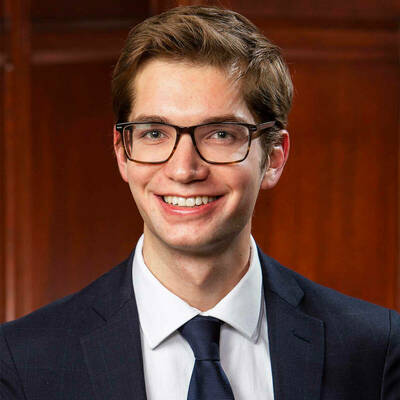
Kyle Dorshorst '22
Majors: International Economics (French concentration) and Political Science
Minors: Constitutional Studies
Why did you choose to major in a romance language/literature?
I chose to major in a Romance language/literature because I wanted to gain the concrete skill of mastering a foreign language during my time at college. The world is becoming increasingly interconnected, and so I thought it would be a useful skill to have and would open a lot of doors in my future.
Not only that, but learning a second language helped me to gain a much deeper appreciation of French music, literature, art, and culture, which has really enriched my life. The international economics major provided an ideal way to incorporate these types of cultural studies with a similarly firm grounding in economics.
Were you always interested in topics related to your major?
I started studying French in middle school, so I knew that I wanted to continue those studies in college. The strength of the program, though, propelled me to keep taking classes past the proficiency requirements and really attempt to gain a higher level of French ability.
So far, what has been your favorite class in the program and why?
My favorite class in this program has been French Female Filmmakers, taught by Professor Morel. I’ve always been interested in learning more about film, and France obviously has a rich tradition of filmmaking as the birthplace of cinema.
One of the really great aspects of majoring in a language is that the upper level courses can cover a variety of topics. As such, within my French classes I’ve been able to study not just film but also history, literature, and graphic novels, which I otherwise may not have been able to do.
Have you conducted any related research or independent study?
As part of my international economics major, I completed a senior research project which compared aspects of French competition law with U.S. antitrust enforcement, specifically as it relates to Big Tech. While not being able to study abroad derailed my initial research plans a bit, it opened me up to this whole other topic which I may not have otherwise considered or even been aware of.
I also was asked by an economics professor to assist with translating a data set from French into English, which was a cool opportunity that I definitely wouldn’t have expected to do when I first started studying the language.
What makes your program at Notre Dame stand out among programs like it at other schools?
As I was looking at other colleges, the international economics major seemed really unique to Notre Dame. It looked like a great way to incorporate study in two seemingly different areas—economics and a foreign language—yet, they combined to form an interesting and engaging major. It definitely was a factor in my ultimate decision to attend ND.
Do you have any advice for prospective students who are considering a major in a romance language/literature?
Do it! While I never would have expected that my study abroad plans would be cancelled, hopefully that won’t be a problem going forward. Additionally, I’m really happy that I took the time to keep studying a language over the past four years. If I would’ve just stopped after high school, I likely would have lost a lot of my French ability by now. Instead, as long as I keep practicing (which I intend to do by traveling to France this summer after graduation), I hope to have gained a skill which will last a lifetime.
What are your career plans/post-graduation plans?
Next year, I’ll be moving to Chicago to work full-time at Cornerstone Research, an economic and financial consulting firm.
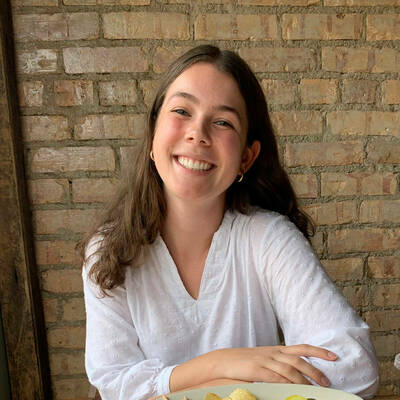
Maria Teel '22
Majors: Political Science, French
Minor: International Development Studies
Why did you choose to major in a romance language/literature?
I chose the French major because it allows me to apply my other areas of study (political science and international development studies) to a broader international scale.
Since I want to work in international development after graduation, speaking another language is a true asset.
My language skills have already supplemented my work on international development projects through the Pulte Institute for Global Development, where my role as a research assistant includes translation and interpretation for our partners in Senegal (a Francophone West African country).
Were you always interested in topics related to this major?
I started taking French classes as a first-year student since it was required for the College of Arts and Letters. After taking a few classes, I first decided to declare the supplemental major and later scaled up to a full major.
I also was convinced to declare the French major once I saw the applications of my French knowledge; I interned for the Mandela Washington Fellowship for Young African Leaders the summer after my first year at Notre Dame and was able to communicate with Fellows from francophone African countries like the Democratic Republic of Congo, Mauritius, and Côte d’Ivoire. I loved seeing how my language skills could bridge gaps between people internationally.
What has been your favorite class in the program and why?
My favorite class has been Francophone Peace Studies: Worldwide Activism in Literature and Film with Professor Alison Rice. In this class, we engaged with literature and film from around the Francophone world, from countries like Rwanda and Haiti. My previous courses had focused almost entirely on France, so this broader scope of French language materials was very enlightening. I found it really valuable to learn about the international French-speaking world, especially as my interests lie in international development.
Have you conducted any related research or independent study?
I completed a capstone for the international development studies minor titled, “A Benchmark Analysis of Multilingual Education Policy and Practice in Senegal.” This project sought to evaluate the status of multilingual education in Senegal.
I created a conceptual framework that identifies three contributing factors to multilingual education success: 1) teacher qualifications and training; 2) accessible supply of first language teaching and learning materials; and 3) language environment. I then used an in-depth literature review and interviews with stakeholders to measure Senegal’s status in these three factors. My French knowledge allowed me to communicate with interviewees, to read sources in French from Senegalese scholars, and to generally integrate myself into the topic.
What makes the French program at Notre Dame stand out among programs like it at other schools?
The opportunity for qualified undergraduate students to take courses at the graduate level makes Notre Dame’s French program stand out. I have taken two graduate-level courses during my time at Notre Dame and really enjoyed the challenge of both. I’ve also felt really welcomed by both the professors and my graduate student classmates. I’m grateful to the professors of these classes, who are eager to open their classroom to undergraduate students who want to learn at a higher level.
Do you have any advice for prospective students who are considering a major in a romance language/literature?
I would encourage students to push themselves to take more internationally-focused French courses. There is so much more to the Francophone world beyond France, and classes that engage with content drawn from the wider Francophone world have been so eye-opening. As a French major, I really feel it’s important to engage with Francophone literature and culture worldwide, not just in the West.
What are your career plans/post-graduation plans?
I’m still waiting on decisions from most programs, but one option I’m excited about for next year is the Fulbright English Teaching Assistant program in Senegal. I hope to use my French skills to work in a Senegalese education setting teaching English.
Two other great opportunities I applied to are the Boren Scholarship, where I would study French in Senegal, and the Teaching Assistant Program in France (TAPIF), where I would teach English in France. With these options in mind, I think it’s clear that my language skills are really central to my career path.
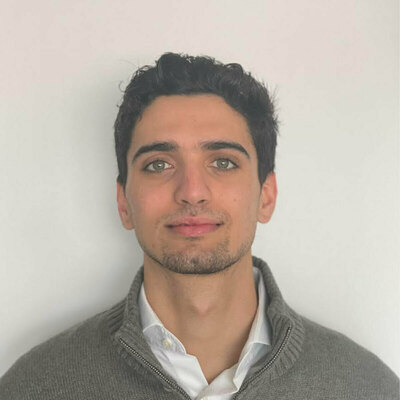
Fouad El Zoghbi '22
Major: International Economics (Spanish concentration)
Why did you choose to major in a romance language/literature?
My upbringing in Lebanon was incredibly rich and diverse linguistically. Ever since the French mandate in the first half of the twentieth century, the language has been taught, spoken, and part of broader Lebanese culture as a whole. Learning French, English and Arabic gave me three separate ways of seeing and interpreting the world around me.
I never understood the pedagogical merit of knowing different languages until I moved to Notre Dame. As an international economics major, I was planning on using Arabic or French as my concentration for the “Easy A.” My decision to learn Spanish and develop a whole new way of understanding the world around me is one that I do not regret at all.
I chose to major in international economics with a concentration in Spanish because I wanted to accumulate good quantitative skills and combine them with my love for languages. I did not see myself becoming an academic specializing in languages, but still had a deep passion for understanding other cultures and people’s experiences as authentically as I can.
Were you always interested in topics related to your major?
I was always interested in gaining a deeper understanding of how the world works on a theoretical and practical level. The economics part of the major was definitely something that helped me conceptualize everything I saw in my everyday life and in the news. The Spanish part helped me buy into and understand a whole new set of cultures in the world.
What has been your favorite class in the program and why?
My favorite class was Economics 43810: Explaining an Unequal World: Empirical Methods in Development with Nilesh Fernando. This class truly encompasses what studying economics is about—considering all possible explanations for economic, political, and sociological phenomena across the world, and having the academic humility to abstain from making concrete assumptions about them. The class taught me to enjoy econometric and quantitative analysis, whilst Professor Fernando’s refreshing teaching style cemented my appreciation of economic concepts.
Have you conducted any related research or independent study?
In my first and sophomore years, I assisted Professor Emilia Powell in the process of gathering and filtering information and data for her 2020 publication Islamic Law and International Law: Peaceful Resolution of Disputes. My tasks included comparative research on different legal systems of interest and their relevance to Professor Powell’s work. I also compiled information and research about prominent trends in Civil and Sharia legal systems implemented at state and community levels across Europe.
Do you have any advice for prospective students who are considering a major in a romance language/literature?
I would highly recommend pursuing a major in a romance language program for various reasons. Firstly, even if you are not planning on focusing your entire future plans on language, learning a new language at a higher level is incredibly important, rewarding and attractive for employers across all industries. Secondly, learning a new language expands your mind in unimaginable ways. Go for it!
What are your career plans/post-graduation plans?
I had initially accepted an offer in Chicago to work in healthcare consulting, but have had my plans change dramatically in the last few months. I will be pursuing a startup project called Maet: “Maet is a marketplace and a community for athletic competitions. It is designed for tournament organizers to seamlessly reach out to athletes, collect payment and track tournament results, all on one platform. Athletes of all levels can track their progress on the app through their Maet Ratings, a numerical score based on a PHD backed algorithm.”

Learn More
- Explore a major in romance languages and literatures at Notre Dame.
- Foreign Languages: Good for Your Brain. Great for Your Career.
- Romance language clubs, research, internships, and more!
Originally published by at admissions.nd.edu on May 17, 2022.